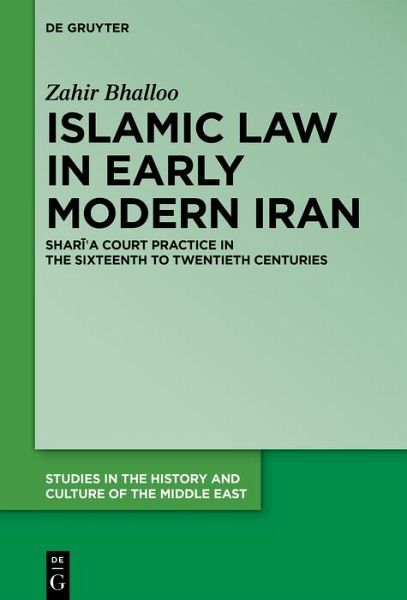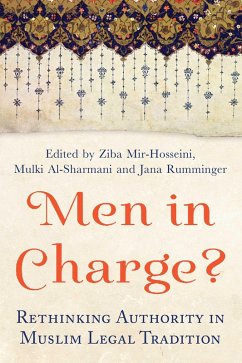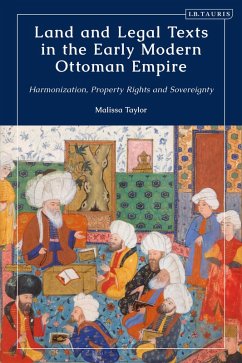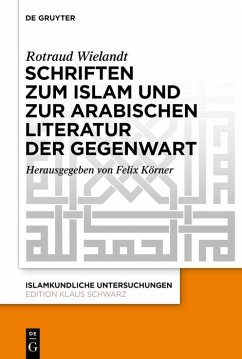
Islamic Law in Early Modern Iran (eBook, ePUB)
Shari¿a Court Practice in the Sixteenth to Twentieth Centuries

PAYBACK Punkte
0 °P sammeln!
Historical studies on the practice of Islamic law (shari¿a) tend to focus on practice in a Sunni setting during the Mamluk or Ottoman periods. This book decenters Sunni and Mamluk and Ottoman normativity by investigating the practice of shari¿a in a Twelver Shi¿i Persian-speaking milieu, in early modern Iran between the sixteenth to twentieth centuries. Drawing on documentary evidence and narrative sources, it reconstructs who the practitioners of Islamic law were, how they authenticated, annulled, and archived legal documents, and how they intervened in the resolution of disputes over reli...
Historical studies on the practice of Islamic law (shari¿a) tend to focus on practice in a Sunni setting during the Mamluk or Ottoman periods. This book decenters Sunni and Mamluk and Ottoman normativity by investigating the practice of shari¿a in a Twelver Shi¿i Persian-speaking milieu, in early modern Iran between the sixteenth to twentieth centuries. Drawing on documentary evidence and narrative sources, it reconstructs who the practitioners of Islamic law were, how they authenticated, annulled, and archived legal documents, and how they intervened in the resolution of disputes over religious endowments (waqf). The study demonstrates that following Iran's conversion to Twelver Shi¿ism under the Safavids, the dominance of U¿uli Shi¿i legal theory, which conferred judicial authority on scholars recognized as Shi¿i jurists (mujathids), affected both the practitioners of Islamic law and the procedures of shari¿a court practice in Iran. Shi¿i jurists in Iran, as a result, would come to exercise by the end of the nineteenth century a judicial monopoly over valid shari¿a court practice thus laying the foundation for Ayatollah Khomeini's extension, during the Iranian revolution, of the authority of the Shi¿i jurist over political affairs.
Dieser Download kann aus rechtlichen Gründen nur mit Rechnungsadresse in A, B, BG, CY, CZ, D, DK, EW, E, FIN, F, GR, HR, H, IRL, I, LT, L, LR, M, NL, PL, P, R, S, SLO, SK ausgeliefert werden.













